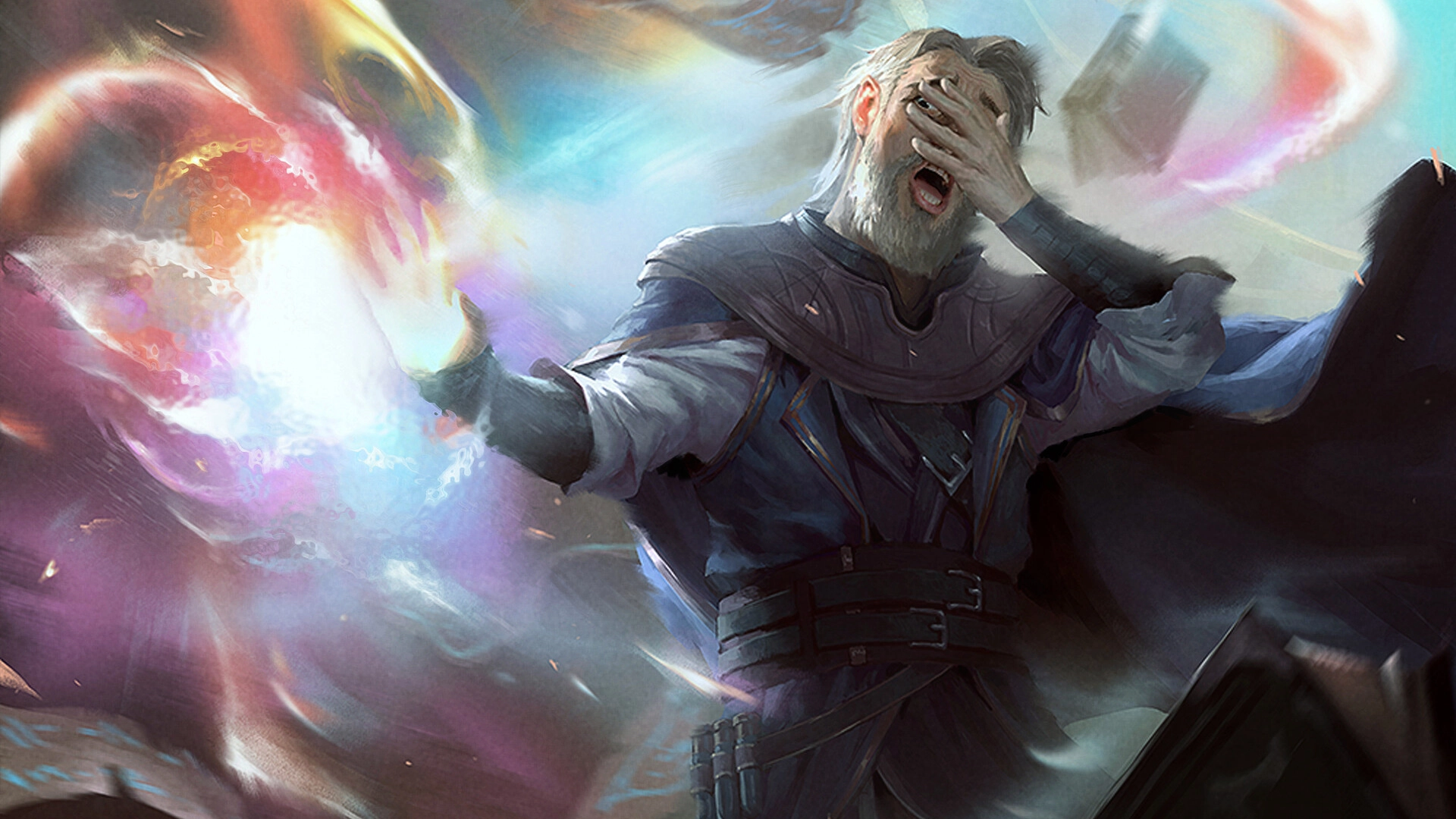When Should You Interact in cEDH?
A lot of people are going to disagree with this article. You’ll probably disagree with some of it. The best part? I can’t prove it’s right and have no way of knowing that it’s right, but this is how I play, and I’m pretty confident in it.
Let me start with a hypothetical scenario. You’re playing cEDH. You’re playing blue, you have a Mental Misstep in your hand. You’re in seat 3 I guess, it doesn’t matter, you have a commander, and so do the other players. They don’t matter at the moment either, but they can matter, we’ll get to that later. The player in seat 1 does one of the best things they can do, they cast a Mystic Remora. The player in seat 2 passes. You have priority. Given this information, do you already know if you’re paying 2 life to counter the Mystic Remora, or do you need more info? If you need more info, what do you need to know?
I’m guessing for a lot of players, that 2 life is gone, and so is the Mystic Remora, no questions asked. For me, 90+% of the time, I’m passing priority without hesitation.
If I’m not using Mental Misstep there, should it even be in my deck?
Ok, so what if they’re playing a Sol Ring instead? Don’t care. What if they’re playing K’rrik, Son of Yawgmoth and it’s a Mana Crypt or Dark Ritual? Ok, in that spot, I actually need to seriously think about my hand and the rest of the table.
Ok, I guess I’ve worked backward so far, I’ve started with the end result, let’s look at the reasoning that got me here.

The Fundamental Turn
To me, cEDH largely revolves around fundamental turns. Those are the turns in which a player is attempting to win the game. On those turns, the table has to stop them or the game is over. Most of the gameplay isn’t actually in stopping them, it’s in them deciding which turn to pick this fight on, and it’s about who stops them, how, and what it cost everyone. The players who win the most are often going to be the players who spend the fewest resources on these turns, and even more importantly, who don’t waste resources on other turns.
So does that mean you never answer anything unless it’s threatening an immediate win?
Well, yes and no. Broadly, whenever a card is cast, you should consider how much equity you personally lose as a result of it resolving/going unanswered. If it ends the game and you don’t win, you’ve lost all of your equity. Realistically, most cards in the early game don’t seem to shift the total equity for most players by all that much in my experience.
The stronger someone’s start is, the more the other players cooperate to hold them off. If the player who was ahead casts three cards and each other player uses a single card to answer each of them, they’ve lost a lot of their advantage. When a player resolves an early Mystic Remora, either the table can play around it and they develop a little slowly and so does the rest of the table, and little equity moves, or the table plays into it, they draw a bunch of cards, then they let it die so they can use those cards, they cast a few spells, discard to hand size, and they’re up a few objects and have a good hand. Maybe that Mystic Remora increased their chances of winning by 15%, and they took that equity roughly evenly from the rest of the table, so I lost 5% of my equity. If I Mental Misstep the Mystic Remora, we’re each down a card, so we’ve each lost a bit of equity and the other two players at the table have gained it, I’ve lost some of my equity, I don’t know if it’s more or less than 5% of my equity, but I also think 15% was being pretty generous to the turn 1 Mystic Remora.
In general, I want some other player to do something more threatening than whatever I’m doing in the early game, so using any sort of interaction to slow someone’s development feels counterproductive. I’ve played a lot of games where I’m behind for the first few turns, but have interaction in my hand to make sure we get to the mid-game, then in the mid-game, the player who came out strongest is getting mad at the rest of the table for wasting all of their interaction on them, wondering how they could have ignored me for so long, and talking about how they don’t know how to break up whatever engine I’ve slowly developed.
It’s not a coincidence, and it’s not exactly the result of their opponents having poor threat assessment–they answered the most threatening thing available at the time that they decided to use whatever interaction they used. If there was a mistake, it was either the player who got their stuff answered making themself too much of a problem too early, or the player who answered it using their interaction when they could have done nothing and waited instead. Both of those things happen a lot.
So about that K’rrik play, when am I going to counter the Mana Vault? K’rrik can win very quickly if their commander resolves, and they typically mulligan for a hand that can cast it on turn one or two. If I don’t have any interaction except the Mental Misstep, or my other interaction would be appreciably more costly for me, and based on the other decks at the table, I think it’s likely that no one else can stop them, I might have to counter the Mana Vault. I would only do this if I assessed that this turn 1 was a fundamental turn and that this was my only interaction point to stop them from winning. Maybe if I let this resolve, they don’t win this turn, but they’re overwhelmingly likely to win 1-2 turns later, then I have to act. Most of the time, I’m not thinking that’s the case.

What’ve You Got to Lose?
There’s one other major variable that indicates how likely I am to answer any given card, and that’s how strong I think my current position is.
If I’m losing by a lot, I have very little equity to lose, so any spell that resolves can’t claim much of my equity personally, so I should just let everything happen. If someone else stops it, the two players involved in that exchange lose equity. Every time I pass and force them to do something, a little equity falls into my lap. This is why I never really count myself out of a game. I might kind of check out, in that, I can consider my equity to be low enough that I’m not going to meaningfully participate until players have worn each other down enough that I have some skin in the game because I have some equity to protect, but if my position is weak at the moment, I don’t have any agency there.
People often mistake a momentary lack of agency for a complete loss of equity–Those other players are so far ahead they each have 40% of the equity, and the two of us who are behind each have about 10% – nah, that’s not how it works a lot of the time. The two who are ahead are duking it out to claim the win, and they have the resources to fight for it, so they have a couple of big exchanges, tear each others’ resources apart, and suddenly the table’s back to even. That’s why no one spell resolving that ends the game is claiming 15% of the equity.
When you’re behind, you sit back, see how things unfold, and sometimes the wind shifts in your favor. When you’re ahead, you’re forced to interact, and you do interact, and you try to find your moment and prepare for a successful fundamental turn.
If I’m way ahead and someone looks like they’re doing something that might win, and I can counter it, I’m snapping that off. If I’m behind, no shot, I have a counter that can save us, I don’t care, not my problem.
The important thing is that in those low agency moments, you might not be taking actions, but you’re not giving up. You’re looking for your spot, and ideally, you’re still playing the table–you’re making sure everyone knows what they need to answer, and encouraging players to exchange resources as much as possible. Every time another player counters anything, a little equity falls into your lap, just wait.
Protect Yourself
There is one other situation that calls for action outside of someone taking an action that will win or put them far enough ahead that their win is inevitable, and that’s something that stops you from winning. Protecting yourself doesn’t mean not losing, it means protecting your equity–protecting your ability to win. If there’s a stax piece that you can’t win through, you might need to counter/remove it, but that “might” is important.
You don’t necessarily have to answer every card that would stop you from winning. Take a look around the table. Who else is it stopping? If the rest of the table doesn’t care, you better believe it’s going to fall on you to answer, but if no one can win through it, maybe just accept that it’s time to take it slow and wait for someone else to solve your problem.
Also, let’s say it does only stop you. Does that mean you need to counter it? Not necessarily–if you have an answer later, that stax piece that’s stopping you from winning could be your best asset.
“Don’t worry about me, I’m out of this game, I’m playing a graveyard deck and there’s a Rest in Peace in play” you say, looking at your Abrupt Decay and waiting for your moment.
Timing and optics are everything, and a card that gives you an appearance of weakness allows you to have a lot more strength before you’re targeted, so let some of that slide.
That’s all I have to say about this for now. Incidentally, I think it’s pretty cool that the best strategic advice, in my opinion, is “let people do things”--it lines up well with a casual EDH mindset, where you let players show off whatever their deck is about, but here, you do it because it’s strategically correct, and that’s one of the things that makes cEDH so fun for me–you can’t afford to stop everyone from doing strong things, so you let them, and everyone gets to do strong things, so everyone has a good time, but at the end of the game, there’s only one winner, and that’s the person who had the successful fundamental turn.



Comment
Join the conversation